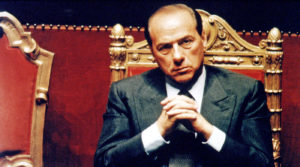When populist candidates started to win national elections in the 2010s, panicked establishmentarians on both sides of the Atlantic warned that they could consolidate their power and destroy democracy. On both counts, these misgivings were misplaced. From Donald Trump to Boris Johnson, contemporary populists have proved incapable of consolidating power or exercising it effectively. And far from being incompatible with democracy, they owe their success to today’s version of democracy, in which protest votes are becoming ritualised. As opposed to being a harbinger of a new fascism, populism is now just another political style, detached from any substantive politics and incapable of radical reform.
Donald Trump’s embrace of Argentina’s new President, Javier Milei, shows how empty of ideological consistency populism can be. If Trump in his first run for the White House and his presidency stood for anything, it was for the rejection of economic libertarianism in favour of tariffs, immigration restriction and a refusal to cut the middle-class entitlements on which his voters depended. Milei, however, is a free-market radical whose programme is the exact opposite of “Trumpism”. And yet, hours after Milei was elected president of Argentina, Trump posted on social media: “Congratulations… you will turn your country around and truly make Argentina great again!”
This might seem like a contradiction, but only if Right-wing populism is considered a coherent public policy programme. And that is far from the case. Today, populism is little more than a shared campaign style — like the weird hair Trump shares with Milei, Johnson, and Geert Wilders.
Further evidence that populism has become a gimmick, rather than a serious programme, comes from the record of populists in office. Silvio Berlusconi, the original Right-wing populist, a plutocrat and media celebrity before Trump, was prime minister in four Italian governments. Despite all the commotion, it is hard to see what, if anything, changed as a result. Under Georgia Meloni, Italy’s hard-Right has reconciled itself to the EU and softened its tone. In the UK, Johnson came and went, securing Brexit but otherwise leaving no trace on public policy. And like a bad-tempered, orange-haired Cheshire Cat, Trump in his first term left nothing but a scowl.
Populist voters in all Western democracies, whatever their other differences, want current high levels of immigration to be reduced. Trump made this central to his campaign in 2016, and it was inextricably wrapped up with Brexit under Johnson. But once in office, Trump betrayed his voters by refusing to press for the only effective way to reduce demand for immigration — requiring American employers to certify that their workers are all US citizens or legal immigrants. Instead, Trump avoided clashing with the business wing of the Republican Party, which is keen on cheap illegal immigrant labour, and diverted attention to a “big, beautiful wall” along the US-Mexican border which his own party failed to fund.
For his part, Johnson as prime minister proved to be as ineffectual in stemming mass migration to the UK as King Canute was in stopping the tide. In 2021, Johnson promised not to return to “the old failed model of… uncontrolled immigration”. And yet, more immigrants arrived in the UK in 2022 than all those who arrived between 1945 and 2022.
The problem here is structural: the very feature of modern Western democracies that creates the demand for populist politicians also ensures their failure. In the north Atlantic, this structure has been transformed in the last generation by two phenomena. The first is the transfer of decision-making power away from democratically elected legislatures and executives to entities that are highly insulated from election results: national and transnational judiciaries, central banks, international institutions, and corporations such as the social media giants that function as de facto public utilities but with no democratic oversight or control. The second is the disintegration of political parties as mass membership organisations, in which ordinary citizens in local chapters can participate and exert influence outside of elections.
The first transformation — the loss of power to technocrats, both public and private — is in itself sufficient to explain the rage and alienation of much of the electorate in the West. In many countries, voters have learned that, no matter what party or candidate they select come election time, nothing will change in terms of policy. After they put in a lot of coins and press a lot of buttons, with no drink rolling out, they start to kick the vending machine.
This fury, particularly when it comes to immigration, is then exploited by populist candidates. But here another transformation comes into play — the capture of powerful, hierarchical organisations by outsiders such as Trump, Johnson or, for that matter, Jeremy Corbyn. With the collapse of organised parties as gatekeepers, competition among protest candidates tends to produce theatrical mavericks who take pride in their independence, even if they happen to run for office as a candidate of one or another legacy party.
Here, then, is the challenge. It took a generation or more for authority to be drained from the political branches in the West to these technocrats. And it will take at least as long for the political branches of government to regain decision-making power that they never should have ceded.
For this to happen, it will require a prolonged campaign of legislative reform and “lawfare” by disciplined parties and coalitions in national legislatures. This, in turn, will require skilful and patient leaders who are institutionalists and party-builders devoted to creating organisations that will outlast their time in office — the very opposite of the wild-haired maverick who campaigns on a slogan such as “build the wall” or waves chainsaws around. On being elected to office, the populist can try to rule by decree, but will lack an organised party to work through, and will find that many policy reforms are impossible to implement.
In the US, those who say that they vote for a particular candidate on the basis of their likely nominations to the Supreme Court or the Federal Reserve show that they actually understand where genuine power lies in modern democracies. Under the unwritten constitution of contemporary America, activist judges make the most important laws; the role of the President is to appoint them, and the role of the Senate is to confirm or reject them. Instead of a big, beautiful wall, Trump’s only lasting legacy, for instance, may indeed be his judicial appointments, which produced the conservative majority on the Supreme Court that returned the power to regulate abortion from the federal government to the states.
For structural reasons, then, popular frustration with the thwarting of voter preferences will continue to create demand among angry, disempowered voters for outsider candidates with big, striking promises, if not always big, striking hair. And, once they are elected, populist demagogues will press the buttons on their desk that are supposed to make their government or party spring into action — only to discover that, in reality, the vending machine is broken and nothing happens.
Disclaimer
Some of the posts we share are controversial and we do not necessarily agree with them in the whole extend. Sometimes we agree with the content or part of it but we do not agree with the narration or language. Nevertheless we find them somehow interesting, valuable and/or informative or we share them, because we strongly believe in freedom of speech, free press and journalism. We strongly encourage you to have a critical approach to all the content, do your own research and analysis to build your own opinion.
We would be glad to have your feedback.
Source: UnHerd Read the original article here: https://unherd.com/



